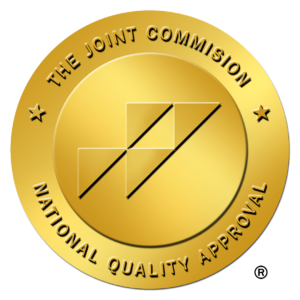The field of healthcare extends beyond doctors and nurses. Allied health professionals are crucial in providing quality patient care and supporting healthcare teams. From Medical Assistants to Behavioral Psychologists, each allied health job contributes to the overall functioning of the healthcare system. What are the roles of these professionals? This blog will explore the responsibilities and requirements of various allied health positions, including Medical Assistant, Medical Laboratory Scientist, Social Worker, Pathology Clerk, and Behavioral Psychologist.
Medical Assistant
Medical Assistants provide essential support to healthcare professionals in various clinical settings. Their responsibilities include:
- Assisting with patient examinations, procedures, and treatments.
- Taking vital signs and patient histories.
- Administering medications and injections.
- Scheduling appointments and managing patient records.
Medical Assistants typically complete a post-secondary certificate or diploma program. These programs cover medical terminology, anatomy, and clinical procedures. While certification is not always mandatory, obtaining the Certified Medical Assistant (CMA) credential can enhance job prospects.
Medical Laboratory Scientist
Medical Laboratory Scientists, also known as Medical Technologists, perform laboratory tests to aid in disease diagnosis and treatment. Their responsibilities include:
- Analyzing patient samples such as blood, urine, and tissues.
- Operating and maintaining laboratory equipment.
- Interpreting test results and communicating findings to healthcare professionals.
- Ensuring quality control and adherence to safety protocols.
To become a Medical Laboratory Scientist, you’ll need a bachelor’s degree in medical laboratory science or a related field. Completing an accredited program and certification from a recognized organization, such as the American Society for Clinical Pathology (ASCP), is also necessary.
Social Worker
Social Workers play a vital role in supporting patients and their families to address social and emotional challenges related to healthcare. These professionals work across the healthcare sphere in hospitals, nursing homes, social service agencies, and more. Their responsibilities include:
- Conducting psychosocial assessments and providing counseling.
- Assisting with discharge planning and coordinating post-hospital care.
- Connecting patients with community resources and support services.
- Advocating for patients’ rights and ensuring their overall well-being.
A bachelor’s degree in social work (BSW) is the minimum requirement for entry-level positions in the social work field. However, a master’s degree in social work (MSW) is often preferred for advanced roles. Licensing requirements vary by state and typically involve completing supervised work experience and passing an examination.
Pathology Clerk
Pathology Clerks provide administrative support within pathology laboratories and medical facilities. Their responsibilities include:
- Managing laboratory specimens, ensuring proper labeling and documentation.
- Entering patient information and test results into computer systems.
- Assisting with inventory management and supply ordering.
- Coordinating communication between the laboratory and healthcare providers.
Pathology Clerks typically require a high school diploma or equivalent. On-the-job training is common, and some employers may prefer candidates with prior healthcare or laboratory experience.
Behavioral Psychologist
Behavioral Psychologists specialize in assessing and treating individuals with mental health disorders or behavioral issues. Their responsibilities include:
- Conducting psychological assessments and diagnostic evaluations.
- Developing treatment plans and providing therapy.
- Collaborating with other healthcare professionals to create comprehensive care plans.
- Monitoring patient progress and adjusting treatment strategies as necessary.
Behavioral Psychologists must complete a doctoral program in psychology, such as a Doctor of Psychology (PsyD) or a Doctor of Philosophy (Ph.D.) in Psychology. They must also fulfill licensure requirements, including supervised clinical experience and passing a licensing examination.
Bluebird Staffing and Allied Health
Allied health professionals form a diverse and essential part of the healthcare workforce. From Medical Assistants to Behavioral Psychologists, each role contributes to the delivery of quality patient care. By understanding these allied health jobs’ roles, responsibilities, and requirements, job candidates can pursue a rewarding career path that aligns with their interests and aspirations. If you’re interested in a career in Allied Health, contact Bluebird Staffing to explore your options.



